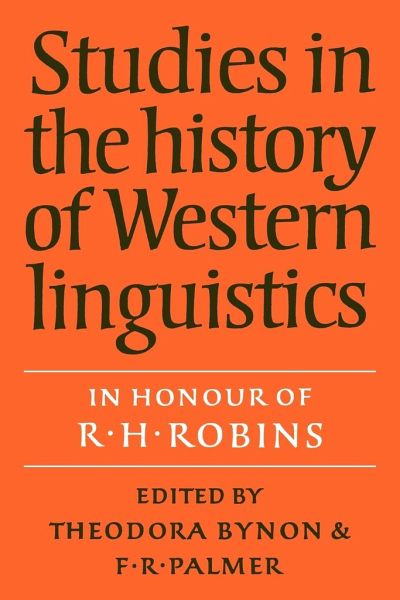
Studies in the History of Western Linguistics
Versandkostenfrei!
Versandfertig in 1-2 Wochen
43,99 €
inkl. MwSt.

PAYBACK Punkte
22 °P sammeln!
This collection of essays documents the important developments of Western linguistics from Classical times onwards.




